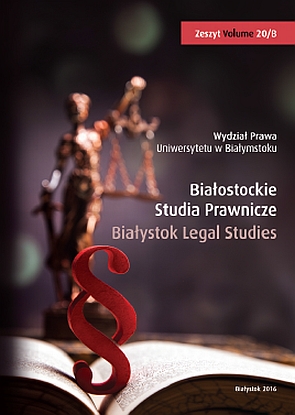Ustępująca ambiwalencja władzy wykonawczej, czyli współpraca zagraniczna polskich regionów a polityka zagraniczna państwa
The departing ambivalence of the executive power, or foreign cooperation of Polish regions vs the state’s foreign policy
Author(s): Maciej PerkowskiSubject(s): Politics / Political Sciences, Law, Constitution, Jurisprudence, Governance, Public Administration, Public Law, Geopolitics
Published by: Temida 2
Keywords: regions; voivodships; regions and international cooperation; state foreign policy; internationalization of regions; international law of local self-government
Summary/Abstract: Foreign activity of European regions depends on their national (constitutional) status. In unitary states, the status is relatively the weakest, rarely explicitly recognized in Constitutions (e.g. in the Netherlands and Portugal), and legal sovereignty belongs exclusively to central authorities. Whereas in federal states, under federal Constitutions it is divided between the federation and its members, which significantly increases independence of the latter, also in the international sphere. Not so broad but still significant activity is demonstrated by regions in regionalised countries, which represent an intermediate form between a federal state and a unitary state with a decentralized structure, where regions are delineated by the Constitution (being a legal guarantee of their existence) and, in addition, have a specific competence in the field of executive power, but without legislative and judicial powers. Such intrastate units benefit from constitutionally guaranteed autonomy, as a territorial division is based mostly on recognition of regions due to their historical traditions or and indwelling ethnic or language group. Given that regionalised countries, such as Spain and Italy, were previously managed as completely unitary ones, the idea that states which are today unitary may become a subject to regionalization in future appears. Certainly, it is not a desired state from the point of view of unitary executive authorities. Therefore, it most probably provokes ambivalence in the approach of regions to foreign activity, in the sense that “it is not proper to prohibit it, encouraging it causes little fear, so it has to be tolerated”. Is it relevant for the relation between foreign cooperation of Polish regions and the state’s foreign policy? In a nutshell: “for now, it is”. However, “constant rubbing wears away the stone” and external conditions (examples and financial incentives), as well as regional initiatives, transfer foreign cooperation from the realm of “event” into the realm of “professional activity”.
Journal: Białostockie Studia Prawnicze
- Issue Year: 20/2016
- Issue No: B
- Page Range: 31-48
- Page Count: 18
- Language: Polish

